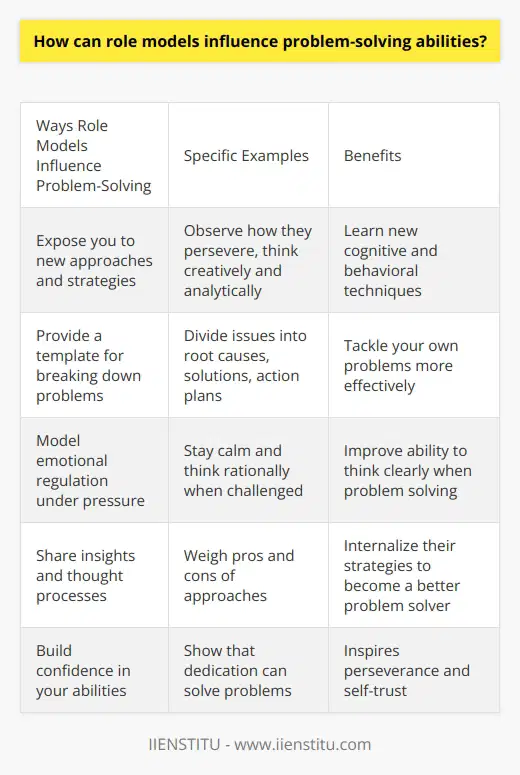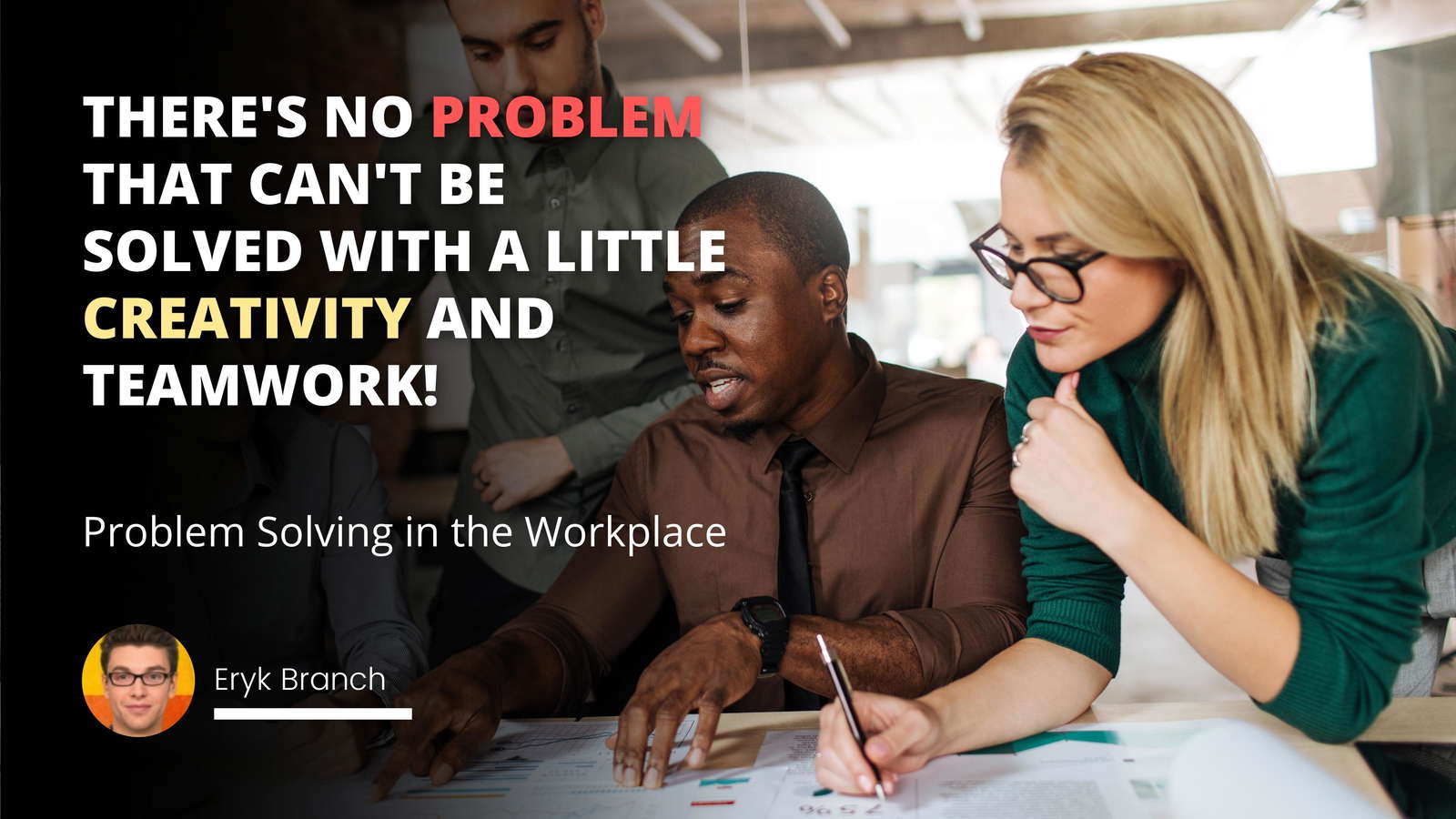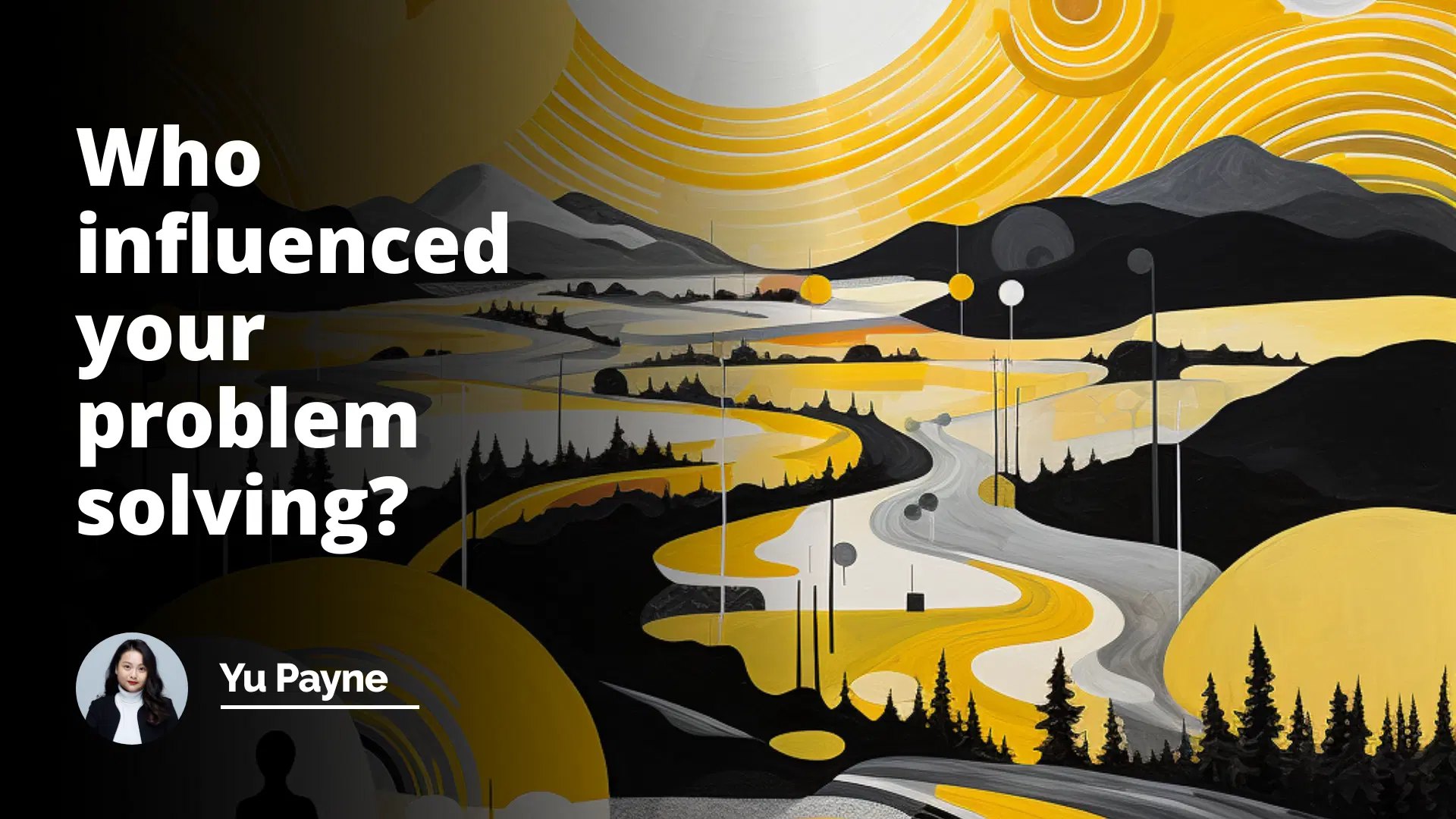
In the dynamic and ever-changing world we live in, problem-solving has become an essential skill. Whether you're faced with a complex issue at work or dealing with a personal challenge, the ability to think critically and find innovative solutions can make all the difference. But have you ever stopped to think about who influenced your problem-solving abilities?
In this article, we will explore the various sources of influence that shape our problem-solving skills and how they contribute to our growth and success.
Family and Upbringing
Our family and upbringing play a significant role in shaping our problem-solving abilities. From an early age, we observe and learn from our parents and siblings. Their problem-solving approaches and strategies become ingrained in our subconscious minds.
If we grew up in an environment where creative thinking and analytical skills were encouraged, we're more likely to approach problems with confidence and flexibility. Conversely, if problem-solving was dismissed or discouraged, we may struggle to develop effective strategies later in life.
Teachers and Mentors
Teachers and mentors have a profound impact on our problem-solving skills. They provide guidance, share their experiences, and offer valuable insights into different problem-solving techniques.
A supportive and knowledgeable teacher can ignite our curiosity, challenge our assumptions, and teach us how to approach problems from multiple perspectives. By nurturing a growth mindset and encouraging us to embrace challenges, mentors can inspire us to become resourceful problem solvers.
Peers and Collaborators
Interview Question: How Do You Balance Personal and Work Time Management?
Interview Question: How Do You Handle Time Management Interruptions?
Our peers and collaborators also influence our problem-solving abilities. Collaboration fosters creativity and allows us to tap into diverse perspectives and expertise. When we work together with others, we have the opportunity to learn from their problem-solving strategies and leverage their unique skills and knowledge.
Effective collaboration encourages open communication, active listening, and the exchange of ideas, leading to more comprehensive and innovative solutions.
Role Models and Influencers
Role models and influencers impact our problem-solving skills through their examples, insights, and experiences. Whether they are successful entrepreneurs, renowned scientists, or public figures, their stories of overcoming challenges and finding solutions serve as inspiration and motivation.
By studying their problem-solving approaches, we can gain new perspectives and strategies to apply to our own situations. Role models can also help us develop perseverance, resilience, and a positive mindset when faced with obstacles.
Personal Experiences and Challenges
Our personal experiences and challenges shape our problem-solving abilities in profound ways. Each problem we encounter offers an opportunity for growth and learning. By reflecting on our past experiences, identifying the strategies that worked, and understanding the ones that didn't, we can refine our problem-solving skills.
Embracing challenges with a growth mindset allows us to build resilience, adaptability, and the ability to navigate complex problems more effectively.
Problem solving is a crucial skill that influences every aspect of our lives. Understanding who influenced your problem-solving abilities can shed light on the sources of your strengths and weaknesses in this domain.
From family and upbringing to teachers, mentors, peers, and personal experiences, each source of influence contributes to your problem-solving arsenal. By embracing a growth mindset, learning from diverse perspectives, and seeking inspiration from role models, you can enhance your problem-solving skills and achieve greater success in both personal and professional challenges.
Similar questions:
Whose problem solving skills have influenced you the most?
Can you identify any specific people who have influenced your problem solving abilities?
Which individuals have had the biggest impact on shaping your problem solving techniques?
Who do you turn to for guidance or inspiration when facing difficult problem solving tasks?
Have you received any mentorship or guidance from experts in problem solving?
Are there any role models or influential figures in your life who have influenced your approach to solving problems?
Have you been influenced by any particular teachers or professors in developing your problem solving skills?
Who do you seek advice or ideas from when you need assistance with problem solving?
Have you ever attended any workshops or training sessions that have influenced your problem solving techniques?
Are there any books or literature that have greatly influenced and improved your problem solving abilities?
Do you rely on any specific individuals or experts in your field for problem solving strategies?
Have you gained any insights or techniques from observing others' problem solving approaches?
Are there any historical figures or famous problem solvers who have influenced your problem solving methods?
Do you often collaborate with others during problem solving tasks? If so, who are the individuals that you typically work with?
Have you been influenced by any specific cultures or traditions in developing your problem solving approach?
Have any family members or close friends played a significant role in shaping your problem solving abilities?
Are there any specific industry leaders or professionals who have influenced your problem solving strategies?
Have you attended any conferences or seminars that have influenced your problem solving techniques?
Are there any online communities or forums that have had a significant impact on improving your problem solving skills?
Have you received any feedback or advice from colleagues or peers that have influenced your problem solving capabilities?
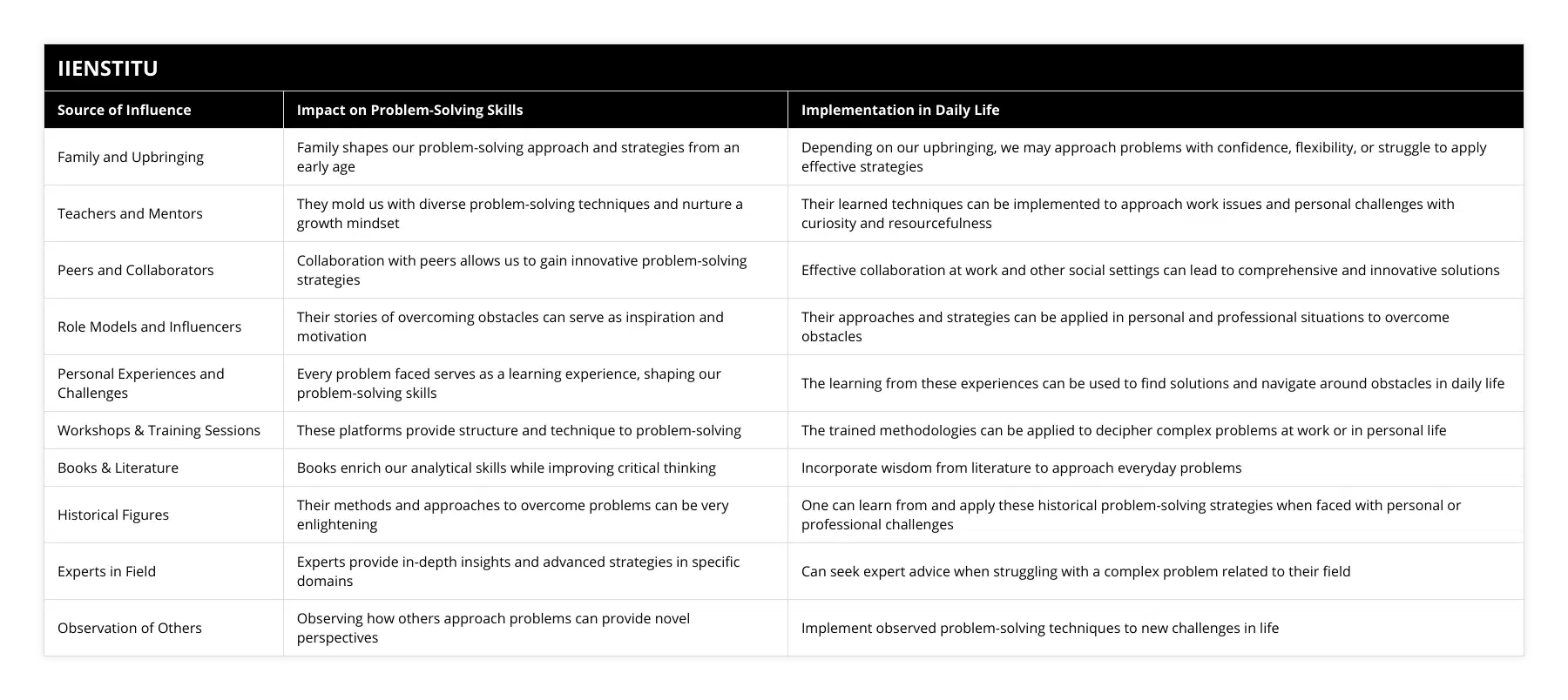
Frequently Asked Questions
How can I improve my problem-solving skills?
Improving problem-solving skills requires practice, continued learning, and an openness to new ideas. Seek out diverse perspectives, collaborate with others, and reflect on past experiences to refine your problem-solving strategies.
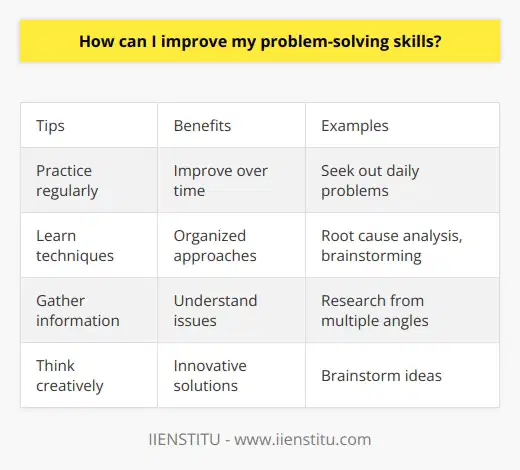
Can problem-solving abilities be learned or are they innate?
While some individuals may have a natural inclination towards problem-solving, it is a skill that can be learned and developed over time. With practice and the right mindset, anyone can become a better problem solver.

How can role models influence problem-solving abilities?
Role models provide inspiration, guidance, and insights into various problem-solving approaches. By studying their experiences and strategies, you can gain new perspectives and learn valuable lessons that can enhance your own problem-solving abilities.
